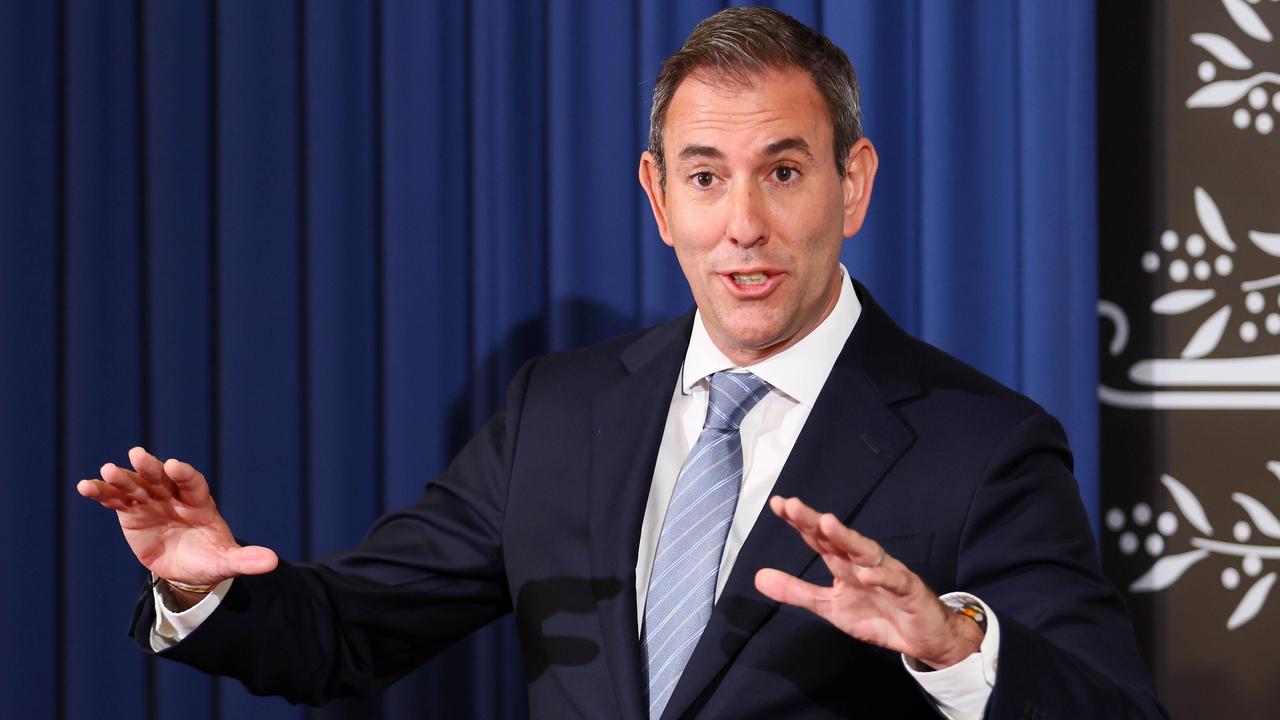Federal budget fails to address aged care reforms as waitlist for home care packages ‘balloons’
Aged care and health groups have slammed the Albanese government for putting major reforms on the “back burner” in the federal budget.
Fed Budget
Don't miss out on the headlines from Fed Budget. Followed categories will be added to My News.
The number of people waiting for aged care to be provided in their own homes will continue to balloon despite funding for an extra 24,100 places in the federal budget, aged care providers claim.
“While we welcome the additional 24, 000 Home Care packages, we note that at the end of last year nearly 52,000 people were waiting for a Home Care Package at their approved level, Uniting’s NSW.ACT CEO Tracey Burton said.
“These additional packages will halve the number on the waitlist but wait lists will still be six months long. And it will mean those who receive a home care package will not be funded according to their need; they will start with a lower care package and go onto a wait list for one that meets their need,“ she said.
This meant the additional home care packages “will actually increase the number of older people waiting for their approved level of care,” Ms Burton said.
Uniting Care was also critical of the government for putting major reforms to the aged care sector on the back burner in the budget.
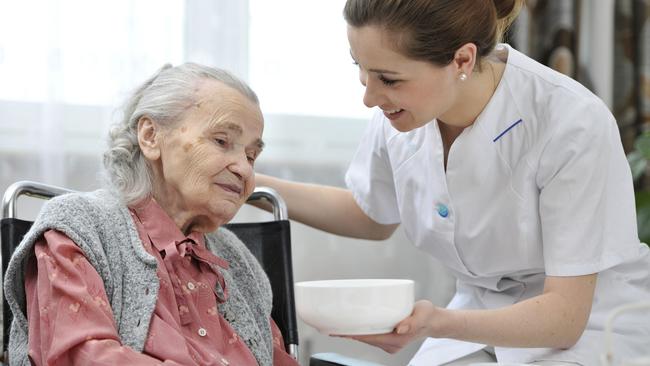
AXING OF $1 DISCOUNT ‘BACKWARD’ STEP
The axing of a $1 discount on medicines prices in the federal budget was a “backward and anti-competitive step” that will raise the price of scripts Chemist Warehouse claims.
A spokesman for the pharmacy giant has expressed outrage at the surprise move announced in the budget.
“It will mean patients who currently shop at pharmacies that pass on the maximum permissible discount will face a Government-imposed price rise,“ the spokesperson said.
“The ability of pharmacies to voluntarily charge their patients cheaper prices for their essential PBS subsidised medicines will be removed,“ they said.
Pharmacies were given the right to discount the government set price for PBS drugs by $1 in 2016 and they had to wear the cost themselves if they offered the price cut.
Chemist Warehouse was almost the only chemist outlet to offer the discount and it has been fiercely opposed by suburban pharmacies represented by the powerful Pharmacy Guild.
“Chemist Warehouse has discounted the co-payment – at no cost to the Government - for all of our customers since the optional $1 discount was introduced in 2016. The
current discounted co-payment is $6.70 for pensioners,“ the Chemist Warehouse spokesman said.
The company claims to have provided “:in the order of $125 million in value to our customers through offering the optional dollar discount”.
“ With the proposed gradual reduction in the allowable discount, our customers who currently enjoy the benefit of the discount will face a price increase for their PBS
medicines at our pharmacies. This is an anti-competitive backward step in the current cost of living crisis,“ the spokesman said..
The Pharmacy Guild of Australia’s National President Professor Trent Twomey however claimed the removal of the $1 discount would provide cost of living relief.
“The freezing of maximum medicine co-payments via the staged application of the discretionary $1 discount will help Australians struggling with the cost of healthcare and will restore universality to the PBS.” Professor Twomey said.
COST OF MEDICINES FROZEN: WHAT YOU’LL PAY
The price of medicines will be frozen for up to five years, more Medicare urgent care clinics will open and free mental health support will be offered, in an $8.7bn budget health commitment.
But there is a sting in the tail in the government’s centrepiece medicines announcement – some people will end up paying more for scripts as the option chemists have to discount the Pharmaceutical Benefit Scheme medicine charge by $1 is scrapped.
This will affect one in five scripts dispensed each year.
Under measures announced in the budget, pensioners will have the cost of their medicines frozen at $7.70 for five years.

General consumers will have the price of their drugs frozen at $31.60 until January 2026.
Health Minister Mark Butler said the measure meant subsidised medicines would “stay cheaper, instead of rising with inflation” on January 1 every year.
The scrapping of the $1 discount was a key demand of the Pharmacy Guild of Australia. Chemist Warehouse was almost the only pharmacy outlet to offer the discount – at its own expense – and will now have to gradually reduce that benefit over a five-year period to zero, in a loss for consumers.
The budget provides more money for mental health, funding for clinical trials of breakthrough new medicines, extra Medicare rebates for MRIs and free tampons for women in the bush.
But it also contains cuts to Medicare rebates for CT scans, and doctors will have to order fewer blood tests for asymptomatic urinary tract infections and Vitamin B12 checks for vegetarians, saving the government $617.4m over four years.

As previously announced, the government will spend $227m to provide a further 29 Medicare urgent care clinics that will provide free after-hours care in the community and reduce pressure on hospital emergency departments.
With mental health problems soaring and wait times for psychologists up to nine months, the government will spend $163.9m on a new free early intervention mental health service for low-grade psychological problems.
The new program is expected to help around 150,000 people a year pick up the phone and access free support before their distress escalates to needing higher intensity services such as a mental health treatment plan, acute in-patient service or crisis line.
There will also be a further $71m to provide wrap around care for people with more intense mental health issues.
And the number of free Head to Health drop-in clinics will rise to 61 by mid-2026 and they will be upgraded so every centre has psychiatrists, psychologists and GPs on call.
“Whether in person, over the phone or on a device, at a free walk-in centre or from the comfort of your bedroom, we are expanding the ways Australians can get mental health care,” Health Minister Mark Butler said.
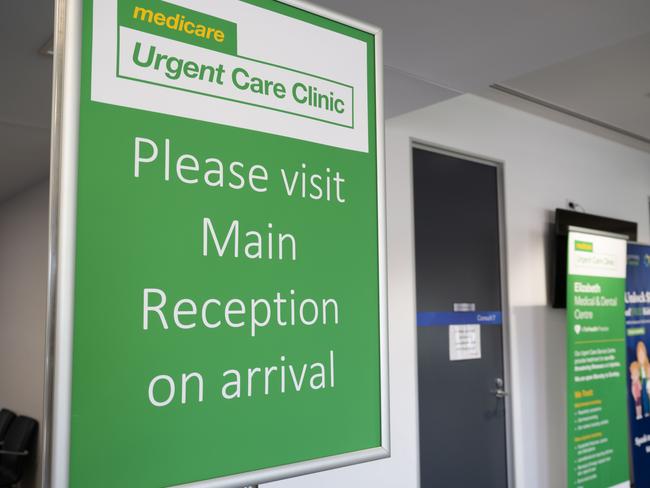
It will be easier to get a Medicare-subsidised MRI with the number of machines registered for Medicare rebates almost tripling from 227 machines to 620 machines.
The age for free bowel cancer screening will be lowered from 50 to 45, so Australians between the age of 45 and 49 can request a screening kit.
GP groups are disappointed there was no increase in the $41.20 Medicare rebate in the budget as Australia faces a massive shortage of GPs with just one in 10 medical students now interested in a career in general practice.
Australian General Practice Alliance chair Dr Mukesh Haikerwal said the 58 Medicare Urgent Care clinics would likely see fewer than a million patients a year compared to the close to 170 million consultations in general practice.
“It is a drop in the bucket. A distraction from the real task of properly funding and supporting general practice to improve access nationally,” he said.
BUDGET FUELS UNCERTAINTY FOR AUSTRALIANS AT RISK OF SUICIDE
The suicide prevention sector say they have been left “stunned and concerned” with the news that the newly formed National Suicide Prevention Office (NSPO) is set to be absorbed into the machinery of government.
Suicide Prevention Australia CEO, Nieves Murray said: “A clear omission in the budget is direct investment into crisis support services to manage the distress already being felt in our local communities.
“We also cautiously welcome the establishment of a national low intensity digital mental health service that is free of charge and free of need for referral.
“The digital service will be designed so people can get support before their health needs escalate to requiring higher-intensity services such as a mental health treatment plan, acute in-patient service or a crisis line.
“More still needs to be done to sufficiently grow and strengthen the suicide prevention peer workforce.
MORE HOME CARE PACKAGES
A large aged care home provider said the budget had missed the mark for older people.
Uniting NSW.ACT CEO Tracey Burton said the Government had missed the opportunity to respond to the Aged Care Taskforce and was not holistically tackling the funding issues in aged care.
“The Treasurer told us this was a budget for every Australian, but not if you’re older and in need of aged care or waiting for a Home Care package,” Ms Burton said.
“Uniting welcomes the Government’s announcement of some additional funding for the aged care sector, particularly around regulatory reform and wages, however, it’s not the continuation of the aged care reforms the previous Government started.
“With the pause button still pressed on the Aged Care Taskforce recommendations and delay in finalisation of the Aged Care Act, the sector can’t plan, we can’t strategise and we can’t act on the very real need we face, now and in the future, to meet the anticipated and the very real needs of older people.”
Ms Burton said providers can’t plan or build new aged care homes or upgrade old ones.
“The impact on the hospital system will continue to be felt as senior citizens are unable to be discharged to care in their homes or in aged care,” Ms Barton said.
“And while we welcome the additional 24,000 Home Care packages, we note that at the end of last year nearly 52,000 people were waiting for a Home Care Package at their approved level.”
She said wait lists will still be six months long. And it will mean those who receive a home care package will not be funded according to their need; they will start with a lower care package and go onto a wait list for one that meets their need.
“So the announcement of these additional home care packages will actually increase the number of older people waiting for their approved level of care,” Ms Burton said.
“The Government now needs to dedicate itself to urgently finish the work of the Aged Care Taskforce to ensure the sustainability of the aged care sector so that older people can receive the support they need and age with dignity.”
It comes as older Australians will have access to a further 24,100 home-care packages to help them stay in their own home as they become increasingly frail, but key reforms to the troubled aged care sector have been delayed.
The aged care watchdog will be given a further 277 staff to carry out 120 extra audits on shonky aged care providers in the federal budget.
There is more funding to employ additional call centre staff to field queries about upcoming aged care reforms from July 2025.
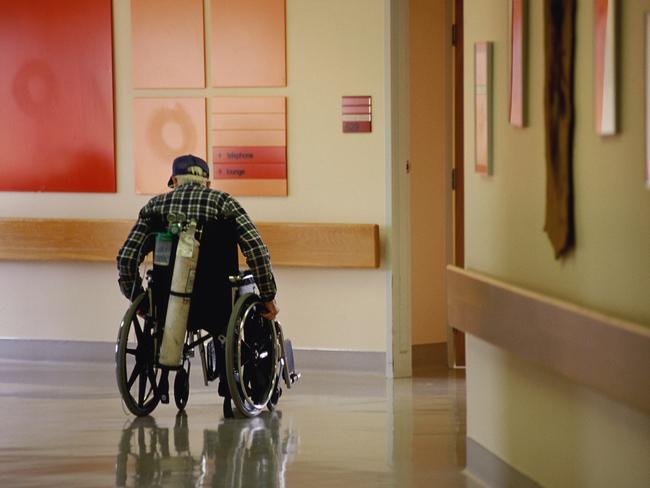
And the government will provide funding to the states for care for older people while they wait for a nursing home bed – to relieve pressure on hospitals.
There will also be new hospital outreach services in the community and more virtual treatment services.
“This budget delivers $882.2m to ensure older Australians get the medical support they need in a safe and comfortable environment when they don’t need to stay in hospital, while freeing up beds for other patients who do,” Aged Care Minister Anika Wells said.
The budget also provides $1.4bn to aged care providers to help them put in place new technology to deliver upcoming changes to the aged care system.
The extra in-home care places will help deal with ever-growing waiting lists for elderly care, but even those who currently have packages don’t receive the help they are entitled to because of workforce shortages.
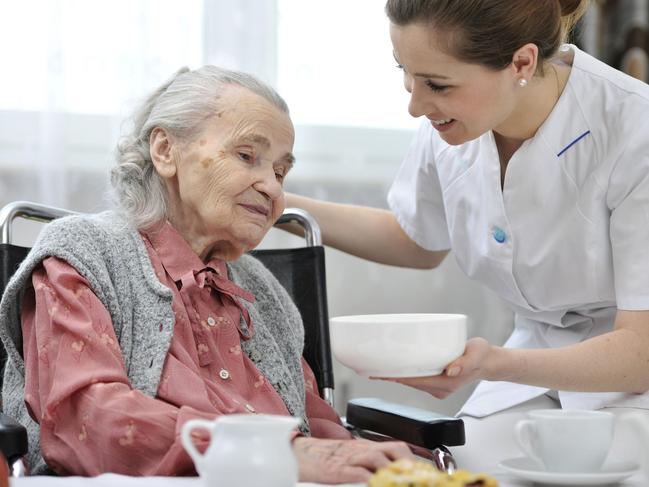
A government taskforce has called for older Australians with the ability to pay to fund more of their aged care support bills in nursing homes, as well as when they receive help in their own homes.
With an election looming in the next 12 months, the government delayed making decisions on these controversial reforms in the budget.
The new aged care act, which will deliver greater rights to the elderly and was slated to start in July this year, will now not take effect until July 2025.
Changes to the in-home care system now won’t be made until 2027, years after the royal commission found major failings with the system.
The government also failed to provide detail on whether a potentially inflationary 25 per cent wage rise for aged care workers will be introduced in full on July 1 or phased in over a longer period of time.
The government has pledged to fund the pay rise and there is money set aside in the budget to pay for it but the government has hidden the overall cost.
HIV TESTS BOOST
HIV tests will be available through vending machines under a $44 million plan to eliminate the virus in Australia in the federal budget.
People who fear they have the virus will also be able to ask for an HIV test to be mailed to them under a separate $2.5 million trial.
NEW TEST FOR NEWBORNS
Newborn babies will be tested for a greater range of diseases through the heel prick blood test done when they are born, with a $25 million budget funding commitment.
The government promised to raise the number of diseases in the test from 25 to 80 by June last year but failed to deliver on the promise.
By 2025, around 50 conditions are expected to be included in the national testing program which until now has been a postcode lottery with different states testing for different conditions.
Read related topics:Federal Budget 2024

